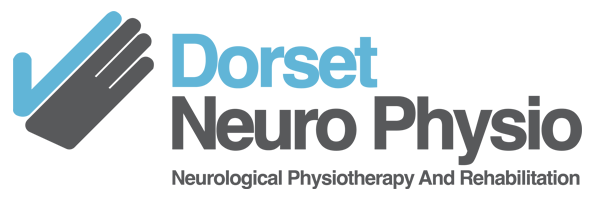Neurological physiotherapy is specialist rehabilitation for people with a condition or injury affecting the central nervous system – the brain, spinal cord or nerves.
Rehabilitation is the process of regaining function through active treatment. It is a joint practice between the physiotherapist and individual.
Neurological physiotherapy includes hands-on treatment, strength-training, functional practice and use of specialist equipment and exercise programmes.
At Dorset Neuro Physio we use expert observation skills and knowledge of movement, biomechanics and motor control to assess a person’s key problems and analyse movement and posture. Our neurological physiotherapists have specialist handling and facilitation skills to activate and strengthen weak muscles and re-educate correct ways to move. This will help the person move more efficiently and freely.
Neuroplasticity – the brain’s mechanism of recovery and learning.
Following an injury or condition affecting the nervous system, parts of the brain may be damaged or not work correctly. Specific hands-on stimulation, sensory feedback and movement sends information to the brain to activate new areas and re-generate nerve pathways. This can help a new area of the brain take over the lost function.
Two of the key principles of neuro rehabilitation are 1) task-related practice – practicing meaningful activities and movements that are common in daily life and 2) repetition, in order to get sufficient signals to and from the brain to help it to re-learn and remember.
It is important that the treatment is centred on the goals of the person. This improves motivation and recovery.

Early physiotherapy to maximise recovery.
People make the most recovery in the first six months following a neurological event e.g. a stroke or head injury. Intensity and frequency of practise at this early stage has been shown to maximise recovery. Your therapist at Dorset Neuro Physio can work independently or alongside your NHS therapy team to provide this.
Research has shown that people can still make positive changes months and even years after diagnosis, and we see this in our practice regularly. It’s never too late to review your progress and potential.
Improvement in long term conditions.
People with long term and progressive neurological conditions can make gains with physiotherapy input by improving posture and efficiency of movement, strengthening muscles that have not been used correctly and learning to manage symptoms such as fatigue. We can also recommend and try specific orthotics or equipment to help make things easier and maintain independence.

